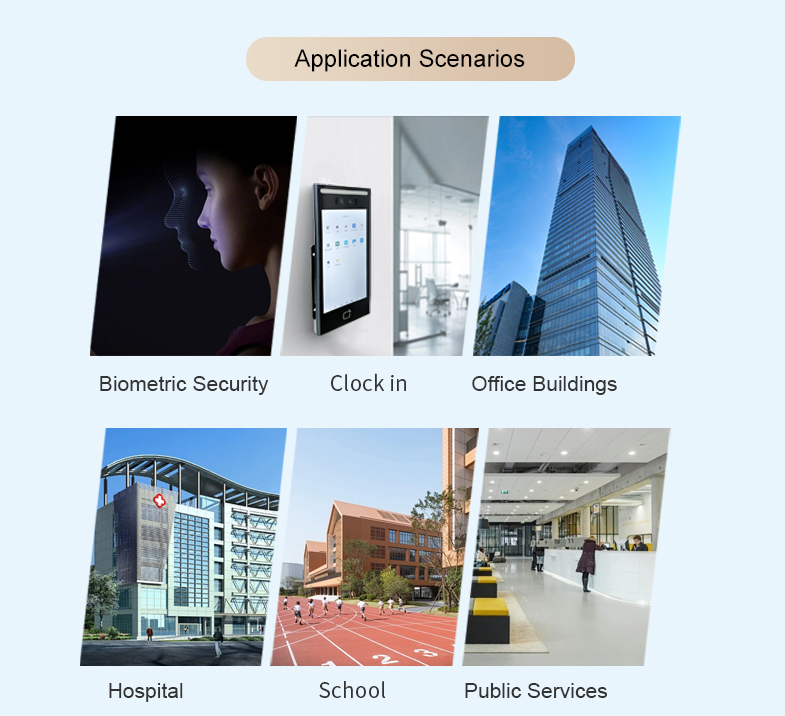Today we're going to talk about something super cool: Emotion Detection AI. Did you know that this technology is becoming the next big thing in facial recognition? As a veteran who has worked in the field of AI for several years, I can tell you that this is definitely an exciting field!

In simple terms, emotion detection AI is about enabling computers to "read" human emotions. Imagine that your phone can not only recognize who you are, but also know what mood you are in. Isn't it amazing?
I still remember the first time I experienced emotion detection AI. It was at a tech show, and I was standing in front of a camera, and the system actually accurately judged that I was both excited and a little nervous. At that moment, I felt that my emotions were "read through", and I was surprised and a little shy!
Emotion detection AI mainly works by analyzing facial expressions. It observes subtle changes in your eyebrows, mouth, eyes, etc., and then infers your emotional state. Interestingly, sometimes AI understands our emotions better than we do!
Did you know that we often have fleeting expressions on our faces, which are called "micro-expressions". Emotion detection AI can capture these subtle changes that we may not even notice. I once participated in a project that used AI to analyze the micro-expressions of negotiating parties, and the results were amazing!
Advanced emotion detection AI not only looks at the face, but also considers the surrounding environment and situation. For example, if you smile while watching a horror movie, AI may judge that this is a sign of tension or anxiety, rather than pure happiness.
Imagine if your phone can detect subtle changes in your emotions and remind you when you may be experiencing symptoms of depression. This is no longer science fiction, but is becoming a reality. I have a friend who is developing a mental health app based on emotion detection AI, which can monitor the user's emotional state through daily selfies.
In the field of customer service, emotion detection AI can help customer service staff better understand customers' emotions and provide more considerate services. I once used an online customer service system that adjusted the tone of the reply according to my expression and tone. It felt like chatting with someone who understood me very well.
In the field of education, emotion detection AI can help teachers understand students' emotional state and adjust their teaching methods. Imagine if teachers could know which students were confused or bored in real time, the classroom effect would definitely be greatly improved.
Although emotion detection AI is already very powerful, it still makes mistakes. Sometimes, it may mistake my pensive expression for unhappiness. This reminds us that we still need to be vigilant when relying on AI judgment.
People from different cultural backgrounds may express emotions in very different ways. I once encountered this problem in an international project. The same expression may have completely different meanings in different countries. This is a huge challenge for AI.
Emotions are very private things. If they are abused, the consequences may be serious. We need to be very careful in handling these sensitive data to ensure that they do not fall into the wrong hands.
Future emotion detection AI may combine multiple information such as facial expressions, voice, body language, etc. to judge emotions. A project I recently participated in tried to combine facial recognition and voice analysis, which was better than using either method alone.
Imagine that when you are too nervous in an important occasion, your smart device can quietly remind you to relax. This real-time feedback may help us better control and express emotions.
Everyone expresses emotions in a unique way. Future emotion detection AI may build personalized emotion models for each user, providing more accurate emotion analysis.
Emotion detection AI may revolutionize the field of mental health. It can help detect mental health problems early, assist in diagnosis, and even participate in the treatment process. However, we should also be aware that AI can never completely replace the role of human professionals.
Some companies are beginning to try to use emotion detection AI in the workplace, such as monitoring employees' stress levels. This may help improve the work environment, but it may also cause additional pressure on employees. We need to carefully balance efficiency and employee well-being.
If AI can accurately tell us the emotions of others, do we still need to cultivate our own emotional intelligence? This is a question worth pondering. I think that even with the help of AI, the ability to understand and empathize is still one of the most valuable qualities of human beings.
The development of emotion detection AI is undoubtedly an exciting field. It not only takes facial recognition technology a step further, but also has the potential to make our digital world more "human". Imagine what a magical experience it would be when your device not only recognizes you, but also understands your mood!
Of course, while enjoying the convenience brought by this technology, we also need to be vigilant about possible risks, especially in terms of privacy protection and ethical use. We need to work together to ensure that the development direction of this technology is to benefit mankind, rather than becoming a tool for control and manipulation.
As a technology enthusiast, I am full of expectations for the future of emotion detection AI. Maybe one day, it will become an indispensable part of our lives, just like smartphones today. Let us look forward to the arrival of this emotional AI era together!
Okay, fellow technology fans, I hope this article will give you a deeper understanding of emotion detection AI. If you have any ideas or experiences, please share them in the comment area! See you next time!